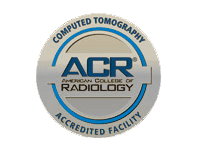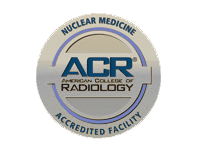What is a CT Scan?
Also called CT, CT Scan and CAT Scan is an X-Ray technique that produces more detailed images of your internal organs than conventional X-Ray exams. X-rays are a form of energy radiation. Conventional X-Ray exams produce two-dimensional images, but CT uses an X-Ray sensing unit, which rotates around your body, and a large computer to create cross-sectional images of the inside of your body. A CT scan reveals bones and organs as well as your pancreas, adrenal glands, ureters and blood vessels, all with a higher degree of precision than an X-Ray. CT is a noninvasive way to view your internal organs and tissues.
The test itself is completely painless. You will be asked to lie quietly on the CT scanner’s “patient couch” during the study. Depending on the type of study being done, you may be injected with an I.V. contrast material during the exam. This may make you feel warm during the injection, but this is a normal feeling.
Because contrast agents contain iodine, which causes an allergic reaction in some individuals, be sure to tell the technologist, nurse, or radiologist if you have had an allergic reaction to these agents before, or if you have any other allergies.We use nonionic contrast exclusively which is less risk to these patients.
Because contrast agents contain iodine, which causes an allergic reaction in some individuals, be sure to tell the technologist, nurse, or radiologist if you have had an allergic reaction to these agents before, or if you have any other allergies.We use nonionic contrast exclusively which is less risk to these patients.

Benefits of a CT Scan
CT scanning machines are powerful devices that harness radiation waves to produce 3D imaging of specific parts of the body. The benefits of CT scans include: CT scans can image bone, soft tissue and blood vessels at the same time. No radiation remains in the person’s body after the scan.
Preparation
- Please contact our office each indication has a different preparation
Risks of a CT Scan
CT scans have many benefits that outweigh this small potential risk. Doctors use the lowest dose of radiation possible to obtain the needed medical information. Also, newer, faster machines and techniques require less radiation than was previously used.
Result
When the exam is complete, a radiologist will review your images electronically. Your physician will receive a report and images detailing the findings from your exam within 24 hours










